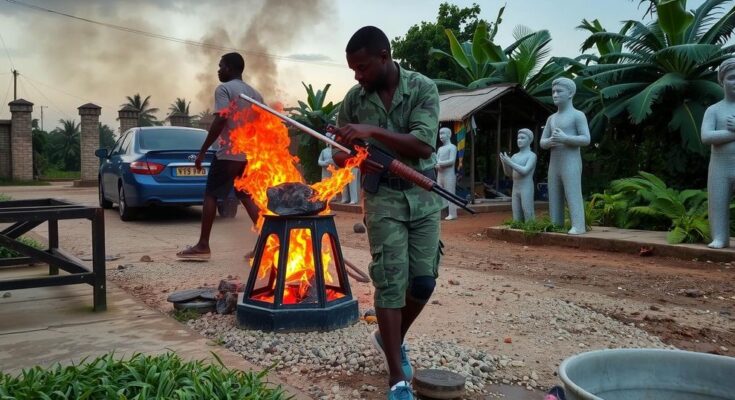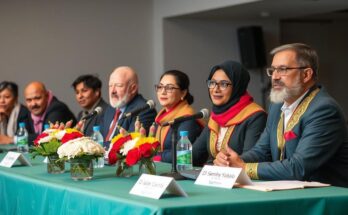The Democratic Republic of Congo has faced incessant conflict rooted in post-colonial struggles, ethnic tensions, and competition over natural resources since gaining independence in 1960. The crisis involves over a hundred armed groups and is exacerbated by foreign interventions while having a devastating impact on civilian populations, resulting in mass displacements and human rights violations. Resolving the conflict requires justice, humanitarian aid, and empowering communities.
The Democratic Republic of Congo (DRC) has endured prolonged conflict stemming from post-colonial power struggles since its independence from Belgium in 1960. The crisis is characterized by ethnic tensions, political rivalries, and disputes over valuable resources. Particularly in the eastern regions, numerous armed groups have proliferated, often operating under changing allegiances rooted in local identities and interests. The impact of historical injustices and colonial legacies continues to exacerbate divisions among communities, contributing to contemporary violence that persists through cycles of conflict, severely affecting civilian populations.
The DRC’s crisis can be traced back to its turbulent post-colonial history marked by poor governance and rampant corruption following independence. Armed conflicts, especially in the eastern regions bordering several neighboring countries, have been fueled by ethnic conflicts and economic interests tied to the rich natural resources of the country, including coltan, gold, diamonds, and cobalt. Additionally, foreign interventions from neighboring nations, most notably Rwanda and Uganda, have complicated the internal strife, culminating in millions of deaths and widespread humanitarian crises.
To resolve the ongoing fighting in the DRC, comprehensive measures are essential, including truth and reparations for victims, humanitarian assistance, and empowering civil society. Addressing historical grievances and ensuring accountability for human rights violations are critical for breaking the cycle of violence. Furthermore, improving governance to facilitate justice and facilitate economic opportunities will be vital in restoring peace and supporting development in the region.
Original Source: www.amnesty.org




